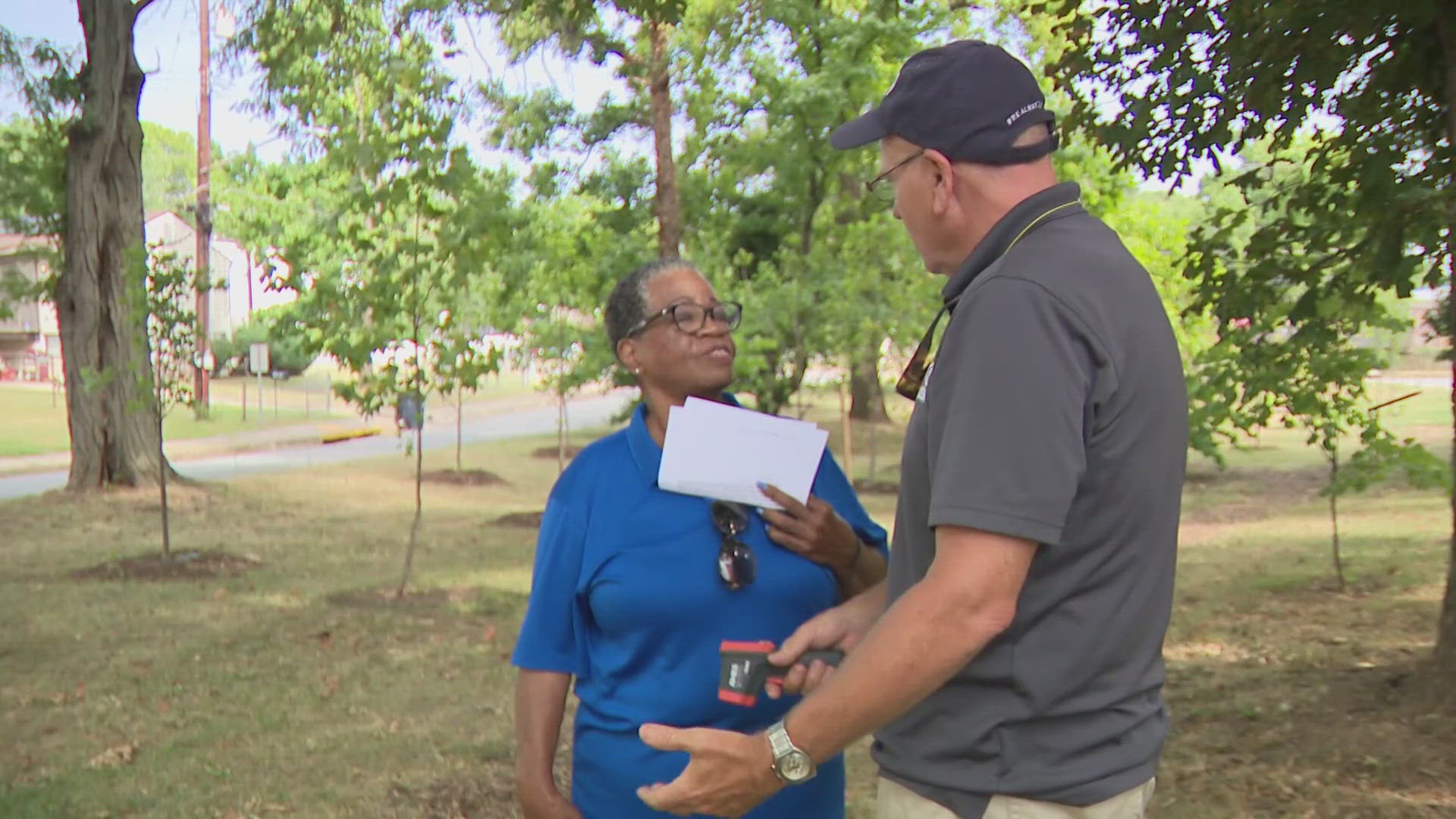FAIRMOUNT HEIGHTS, Md. — A community in Prince George’s County is not content to throw in the towel to climate change.
Instead, the Town of Fairmount Heights has converted a little-used public open space into an intentionally designed heat refuge to combat the heat island effect of surrounding urbanized areas.
The park, which has no official name, and which most residents call "The Ravine," used to be best known for occasionally flooding and for the cost of mowing the sun-scorched grass in the summer.
The property on 60th Place is now the site of a pollinator garden, a rain garden that mitigates the flood run off, and 145 new trees to compliment the few mature trees that still stand there.
Monday, while the region suffered through a heat warning, the park was about 5 to 7 degrees cooler that the surrounding area, according to measurements taken by WUSA9. It will cool further as the trees mature, according to designers.
“The real beneficiaries are the citizens living along The Ravine because before, their basements would flood and they had problems with air conditioning." said town manager Doris Sarumi.
“Slowly and quietly we are leading the charge. I've been talking to the mayor of Seat Pleasant and the mayor of Capitol Heights. I want them to come visit. I want them to experience what we're experiencing today. I want them to feel the actual cooling effect of the tree planting,” Sarumi added.
Prince George's County authorities are tracking the progress using urban heat island mapping data from NASA and information from PEPCO on the impact of the refuge on the air conditioning bills of people living nearby, according to Prince George's County Department of Environment Director Andrea Crooms.
"It is essentially a mini forest in the middle of a neighborhood that sits in a ravine and it's important because it has the ability to cool not only this space, but the space and the homes around it," Crooms said.
“It's just an efficient way to make a significant difference. One of the big problems we're experiencing with climate change is heat islands which are areas that are more developed getting hotter and hotter," Crooms added.
“I think that a lot of people are very intimidated by climate change. But there are solutions that are right in your neighborhood. They're solutions that are attractive. They're solutions that are relatively cost effective to be able to actually make an impact on the lives that we live in the new climate that we exist in.”
The trees for the park redevelopment cost about $90,000 to install and maintain. Much of the investment was covered by state and federal grants, according to Crooms.
Fairmount Heights must continue to pay to mow and maintain the property, but expects the benefits to residents in reduced future cooling bills and reduced flooding will offset the costs.
Town officials are now asking residents to help select a name for the park, Sarumi said.

